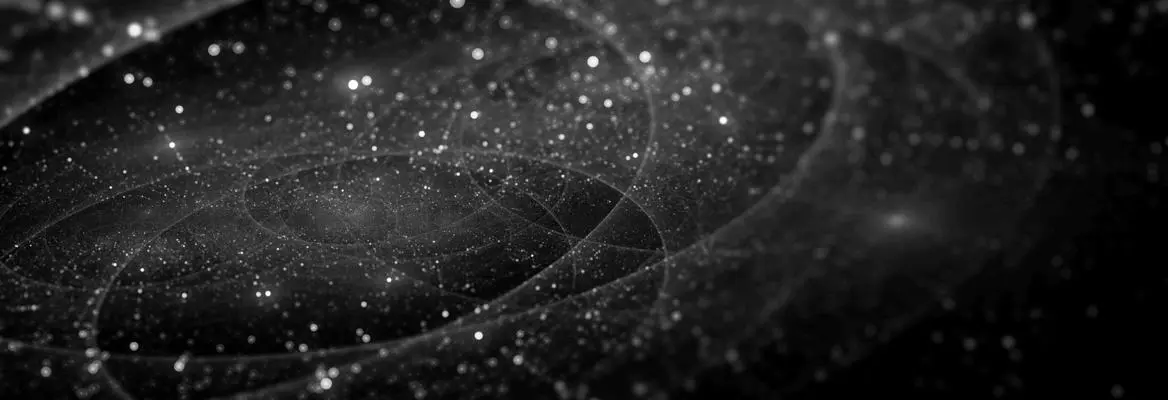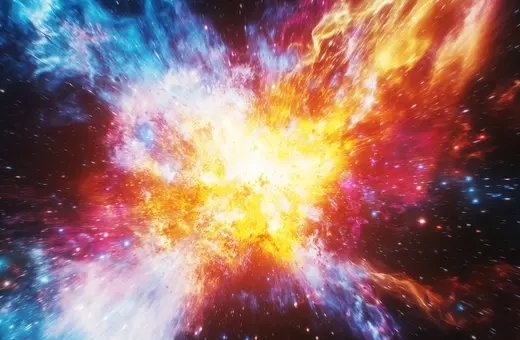The discovery of dark matter would mean a major breakthrough in efforts to advance our understanding of the universe. This is why any hint of such a discovery is greeted with mounting excitement. It's also why such hints should be met with scepticism, writes Richard Panek.
An announcement of the possible discovery of dark matter—for instance, the one this past June 15 from the XENON1T collaboration that generated headlines around the world—merits either of two responses.
One is “Big deal.”
The other is “Big deal.”
The actual discovery of dark matter would in fact be a really big deal, one of the biggest in the history of physics. It would solve a mystery that has been plaguing cosmologists for nearly half a century, but more importantly, it would help validate a reinterpretation of the universe that renders everything we’d previously thought to be the cosmos in its entirety (galaxies, stars, planets, people, pixels) only four or five percent of what’s actually out there.
 SUGGESTED READING
Cutting edge science at HowTheLightGetsIn Global
By
Throughout the 1970s, astronomers using new instruments found that spiral galaxies like our own Milky Way were rotating in a way that didn't make sense, at least according to the laws of gravitation. The outermost wisps of gas and dust and stars were rotating at the same rate as the innermost clots of gas and dust and stars. On the scale of our solar system, the analog would be if the outermost and innermost planets were keeping pace with each other in a race around the Sun, even though Neptune is 73 times more distant from the Sun than Mercury.
SUGGESTED READING
Cutting edge science at HowTheLightGetsIn Global
By
Throughout the 1970s, astronomers using new instruments found that spiral galaxies like our own Milky Way were rotating in a way that didn't make sense, at least according to the laws of gravitation. The outermost wisps of gas and dust and stars were rotating at the same rate as the innermost clots of gas and dust and stars. On the scale of our solar system, the analog would be if the outermost and innermost planets were keeping pace with each other in a race around the Sun, even though Neptune is 73 times more distant from the Sun than Mercury.
If a galaxy were actually just as fast at the rim as at the center, it would be flying apart. It couldn’t survive even a couple of rotations. Yet our own Milky Way galaxy is now on its eighteenth trip around the galactic center, at the rate of one every 250 million years.
Despite the absence of direct evidence of dark matter, the indirect evidence has only grown.
Physicists using computer simulations, however, found that they could stabilize a galaxy gravitationally if they posited a bubble of matter around it roughly ten times more massive than the galaxy.
Or, more accurately, the visible galaxy. The other matter—we’ll call it dark, they decided—seemed to be invisible in any part of the electromagnetic spectrum, from microwave to gamma ray. Physics theorists calculated the properties of such matter, then left the discovery to the physics empiricists: Design detectors to look for subatomic particles possessing specific properties—mass, cosmic density, and so on—and there the particle will be waiting, along with your Nobel Prize.
In 1980 Vera Rubin, one of the astronomers who had discovered some of the most compelling evidence of missing mass in spiral galaxies, predicted the discovery of dark matter within ten years. Ten years later, British astronomer (and future Astronomer Royal) Martin Rees predicted the discovery of dark matter within ten years. Eleven years later, in his book Our Cosmic Habitat, Rees wrote, “I think there is a good chance of achieving this goal within ten years.” Five years later, in 2006, Rees doubled down on that prediction at an American Institute of Physics symposium: Five more years, he vowed. Vera Rubin, who happened to be in the audience, stood up and announced, with an ironic edge familiar to her peers, “I know of earlier predictions.”



















Join the conversation